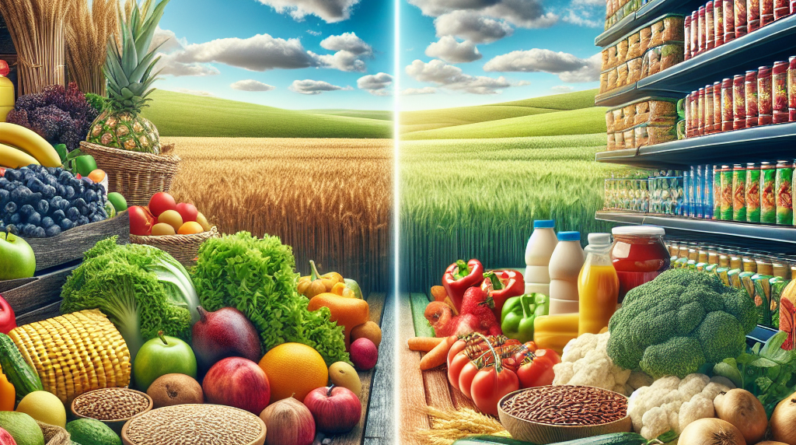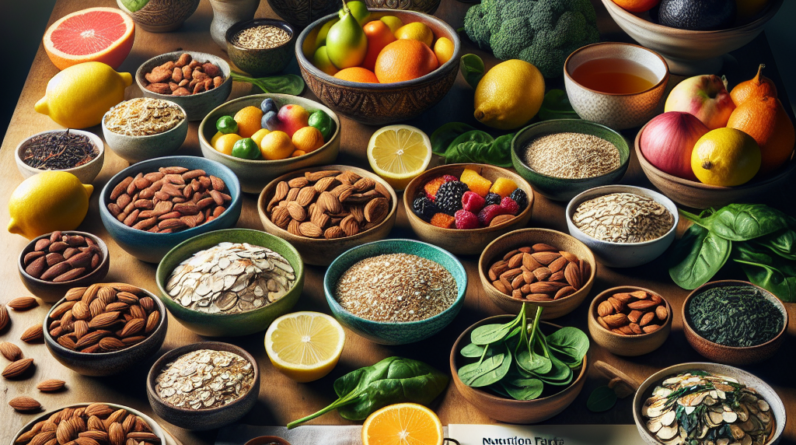
1. Nutritional Value
Understanding Nutrient Profiles
When diving into the world of organic versus conventional foods, one of the first things that come to my mind is the nutritional value. Many folks argue that organic foods pack a nutritional punch. Think about it: organic fruits and veggies are grown without synthetic fertilizers or pesticides, which is pretty appealing. I mean, who wants those kinds of chemicals in their body, right?
Get a Huge Discount and Bonus! Try for 90 Days Risk Free
Interestingly, studies have shown that organic produce often has higher levels of certain antioxidants and nutrients compared to conventional types. Brands often tout their “superfoods,” but do we really know what makes them super? That’s where the organic champions usually come in—lower exposure to toxins means that, at least in theory, you’re feeding your body cleaner ingredients.
But let’s be real, some argue that the differences in nutritional content are negligible. Personally, I think the best diet is a varied diet. So whether you lean towards organic or conventional, just make sure you’re getting your greens!
2. Environmental Impact
The Farming Practices
Ah, the environment! This topic is close to my heart. When it comes to farming practices, organic farming aims to promote biodiversity and sustainability. Using natural fertilizers like compost, rather than chemical ones, can lead to healthier soil and ecosystems. I’ve dabbled in a bit of gardening myself, and I’ve seen how much richer plants thrive in natural soil.
On the flip side, conventional farming often relies on heavy pesticide use and monoculture practices, which can cause severe damage to local ecosystems. Not to mention, the runoff from conventional farms often affects nearby waterways, harming aquatic life. As someone who enjoys hiking and being outdoors, seeing our nature thrive makes my heart smile.
So, in terms of environmental impact, it feels like a no-brainer to me. Choosing organic can help protect biodiversity and sustain our planet’s health; however, I recognize that it’s not all black and white. Conventional methods have their place and can also be a part of sustainable practices.
3. Taste Differences
Flavor Profiles
Have you ever stopped to really taste the difference between organic and conventional foods? I did a little taste-testing with friends not too long ago. We tried organic strawberries versus the conventional ones, and the organic berries were bursting with flavor! I know taste can be subjective, but there’s something truly special about the sweetness that comes from fruits grown organically.
People say organic foods are often fresher because they don’t use preservatives or artificial ripening agents. Freshness plays a major role in how flavors are developed. So when I’m eating an organic tomato, it feels like I’m enjoying summer in every bite. Conventional tomatoes, although still tasty, just don’t have that same vibe!
Now, I should note that not everyone can tell a difference, and it might come down to personal preference or even the way the food is prepared. But for me, savoring food’s natural flavors is an experience worth exploring. Plus, supporting local organic farmers usually leads to fresher, more delicious produce.
Get a Huge Discount and Bonus! Try for 90 Days Risk Free
4. Price Considerations
Budget Impact
Let’s talk turkey—er, I mean, money. One of the biggest hurdles I’ve faced with organic foods is the price. It’s no secret that organic options tend to be more expensive than their conventional counterparts. Whenever I grab a basket of organic carrots, I feel my wallet trying to run for the hills!
Good Health Solution is Easier Than Most People Think!
Take a Look for Yourself!
But there’s a silver lining here. I’ve learned to plan my purchases. Exploring local farmers’ markets can be a fantastic way to snag fresh organic produce at a better price. Plus, buying in bulk and seasonally makes a big difference! You’d be amazed at how much you can save by shopping smart.
Need a Serious Energy BOOST? Huge Discount Try for 90 Days Risk Free
Ultimately, I’ve come to accept that paying a bit more at times means I’m investing in my health and the health of the planet. It’s about finding that balance, ya know? We all deserve to eat well without breaking the bank, so I encourage experimenting with both types and figuring out what works for you!
5. Health Considerations
Potential Health Effects
When it comes to health, the debate between organic and conventional foods is rife with passionate opinions. I’ve heard various arguments about how organic foods are not exposed to harmful pesticides, which obviously sounds like a win. I mean, who wouldn’t want to avoid that stuff? That said, some studies show that the residue levels on conventional foods are still within safe limits.
One thing that strikes me is how consumers’ choices are also influenced by the information available. People are more health-conscious today than ever, and organic foods are often seen as a healthier option, despite the ongoing debate. I remember when I switched to organic milk because I was concerned about the hormones in conventional products; it felt like a necessary change for my family’s well-being.
However, I’d always encourage being educated about where your food comes from. Not everything labeled “organic” is created equal, and it can be a bit of a minefield. So just keep that in mind and do your research—you’re a smart cookie! Ultimately, our health is our wealth, and making informed choices is key.
Frequently Asked Questions
What is the main difference between organic and conventional foods?
The primary difference lies in how they are grown. Organic foods are cultivated without the use of synthetic pesticides or fertilizers, focusing on natural farming methods. In contrast, conventional farming often employs these chemical treatments to enhance growth and pest control.
Are organic foods healthier than conventional?
There’s a lot of debate surrounding this topic. Many believe organic foods are healthier due to lower pesticide residue and higher nutrients. However, some studies suggest that the differences might be minimal.
Why are organic foods more expensive?
Organic farming tends to be more labor-intensive and often yields less product compared to conventional farming methods. This, coupled with stricter regulations and certifications, can lead to higher prices at the store.
Do organic foods taste better?
Many people, including myself, find that organic foods often have richer, more natural flavors. However, taste can be subjective, and personal experiences may vary.
Is it worth switching to organic foods?
From my perspective, switching to organic can be beneficial, especially for those concerned about pesticides and environmental impacts. However, it’s essential to find a balance that works for your budget and lifestyle.







